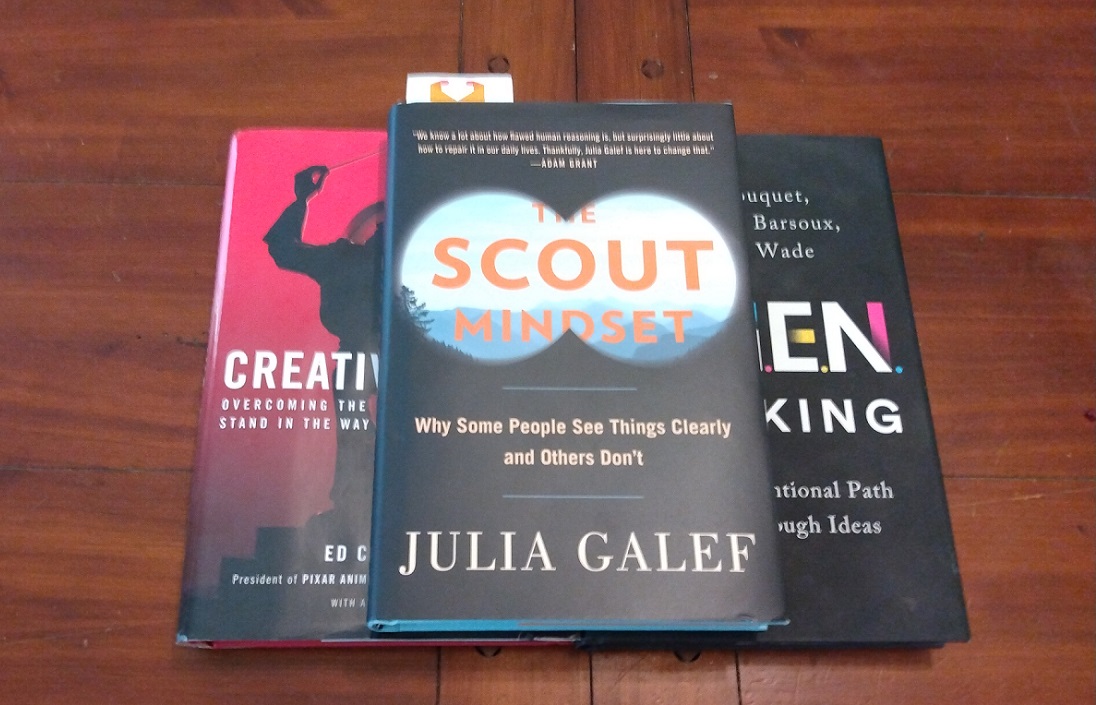
The Scout Mindset has some excellent thoughts for business leaders that want to improve their business relationships and decision-making processes. The book was written by Julia Galef, host of the podcast Rationally Speaking. Julia discusses business and social issues. Most of all, she tackles thought processes, motivations, reasoning and assumptions in regards to how we make decisions.
Two mindsets are described. The scout mindset and the soldier mindset. We are all a blend of these two mindsets, but we could improve our business strategy, communications and relationships if we moved more towards the scout.
The Soldier Mindset
In the soldier mindset, reasoning is like defensive combat. This mindset seeks evidence to fortify and defend beliefs. It leads to directional motivated reasoning, denial and self-deception.
The soldier mindset can lead us to feel good about ourselves and helps us fit into our social groups.
Of course, this mindset can lead to close-mindedness which can keep us from noticing opportunities to improve relationships and improve our businesses.
The Scout Mindset
In the scout mindset, reasoning is like mapmaking with flexibility. This mindset seeks evidence that will make the map more accurate. It allows for accuracy motivated reasoning, discovery and honesty. As new information is learned, the scout may change their thought process.
The scout mindset can lead us to see things more clearly to see which risks are worth taking, how to pursue goals and how to improve our judgement.
Signs of a Scout
- Tells other people when you realize they are right.
- Reacts non-defensively to personal criticism.
- Has the ability to prove oneself wrong.
- Takes precautions to avoid self-deception.
- Learns to spot biases.
Takeaways for Business Owners and Leaders
Scout attributes could help us be better business owners and leaders. They could help us improve our business strategies and relationships.
Business Strategies
Self-deception from the soldier mindset can lead to such statements as “there is no chance this idea can fail”. Conversely, self-deception can lead us to think that business conditions can improve all on their own. The “do-nothing” approach. Business decisions and success are all about improving odds, there are no guarantees. Business strategies are really risk / reward scenarios.
Elon Musk was honest with himself and estimated a 10% chance of success with Tesla. However, the monetary and environmental rewards led him to take the risk.
Related: Evaluating Risk in the Decision-Making Process
We can improve our business strategies by performing data research and gaining perspectives from other people.
In research, we must consider the source. It is best to seek multiple sources and understand each source. Learn how the data was calculated. What was the sample size used in gathering data? Does the source have a motivation to provide biased data?
When gaining perspectives from other people, we should strive to find people who are trustworthy, honest and proficient. These people could offer perspectives from their experiences and help us challenge our own biases and assumptions.
Related: Sales Forecasting and Risk Assessment for Small Businesses
Relationships
Relationships with employees, service providers and customers could be improved if time was taken to listen without bias. Consider these two examples from personal experience:
Take the example of a chronically tardy, but technically proficient employee. The business owner could have fired the employee for excessive tardiness. The owner took time to respectfully talk with the employee about the situation. As it turned out, the employee’s transportation had gone from reliable to unreliable. The owner made the employee a small loan to get their car fixed.
Another example. A purchasing agent called a supplier for a rush order of needed components used on a larger assembled product. The supplier complied. A couple of weeks later the supplier noticed that the rushed components had not been used. The supplier wondered why they were asked to jump through hoops to rush the components. The supplier had a respectful conversation with the purchasing agent.
It turned out that components from other suppliers had not been delivered. The larger product still could not be assembled. However, the purchasing agent was very grateful because her supplier components were available. The components that were not available were from another purchasing agent’s supplier. In short, the delay in assembly was not her fault and her performance looked outstanding to her managers. This conversation led to a much deeper and valuable relationship between the supplier and purchasing agent.
The scout mindset can be helpful in improving our businesses and relationships by leading us to see more clearly as we define our business strategies, processes and risk / reward scenarios.

